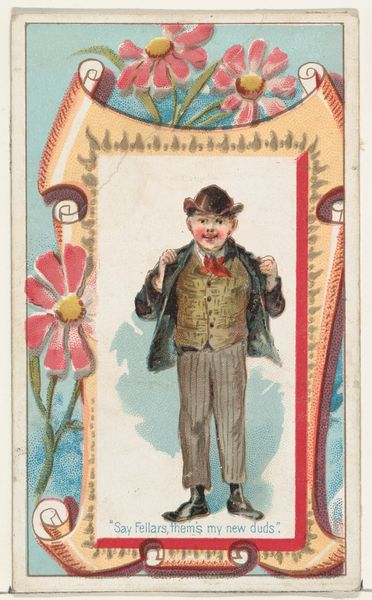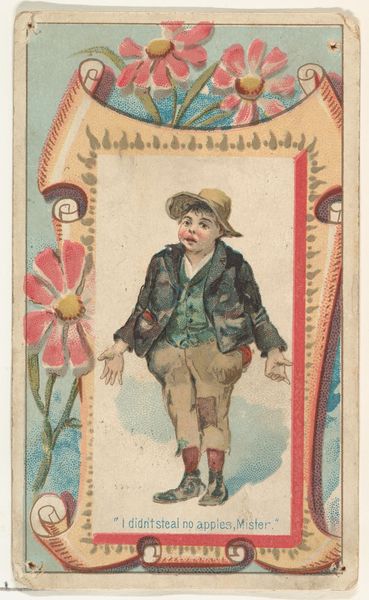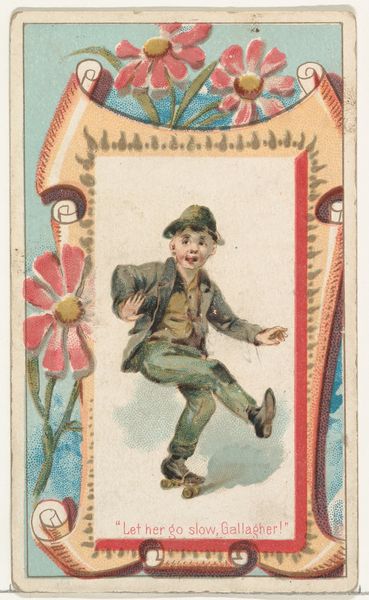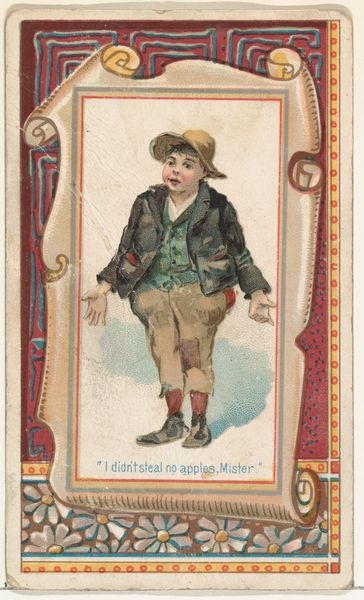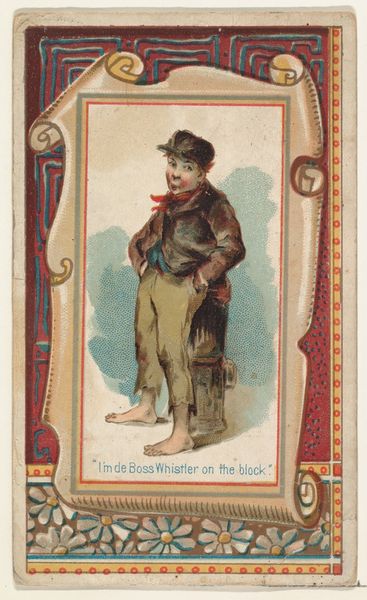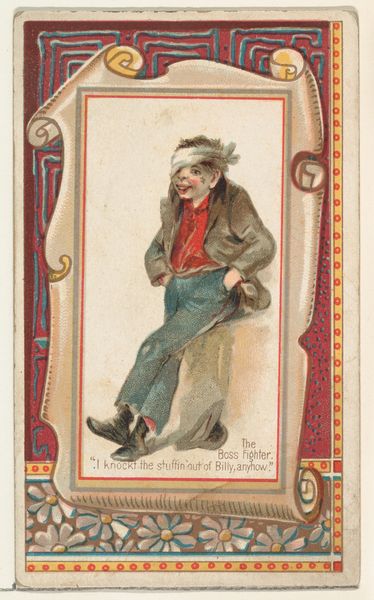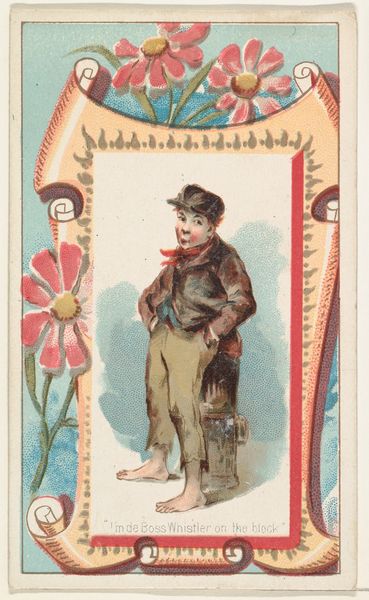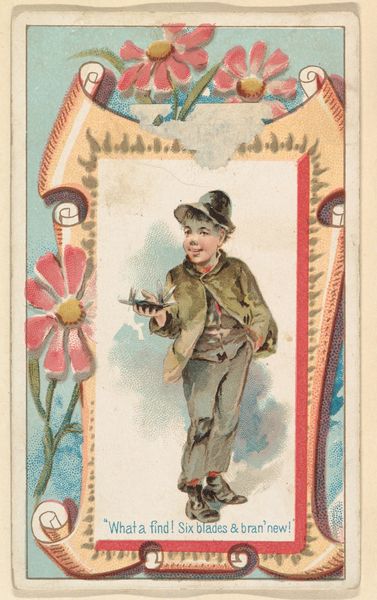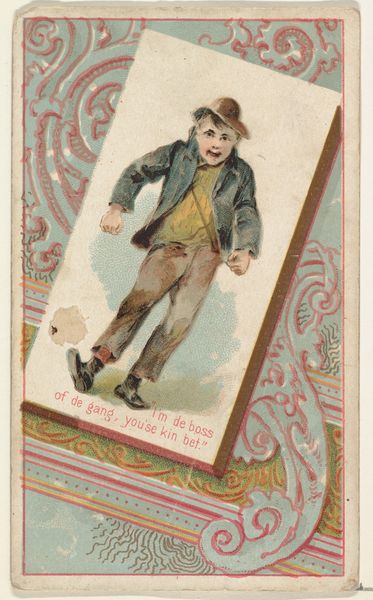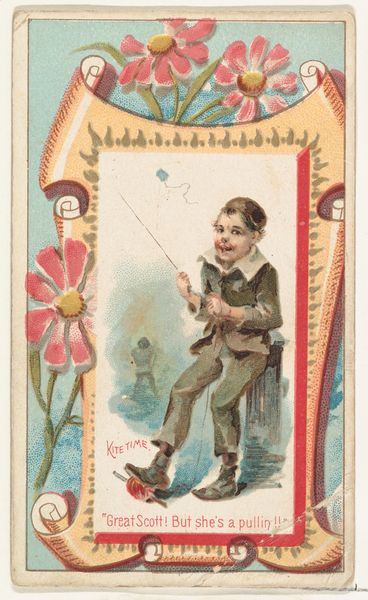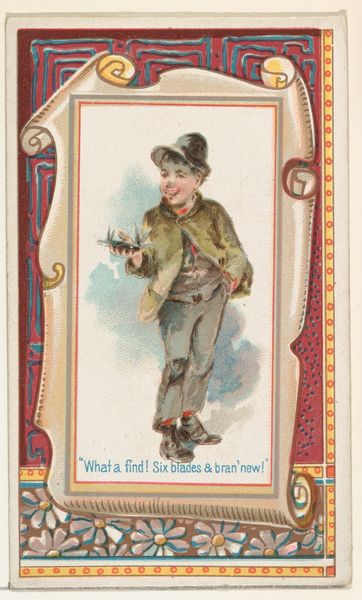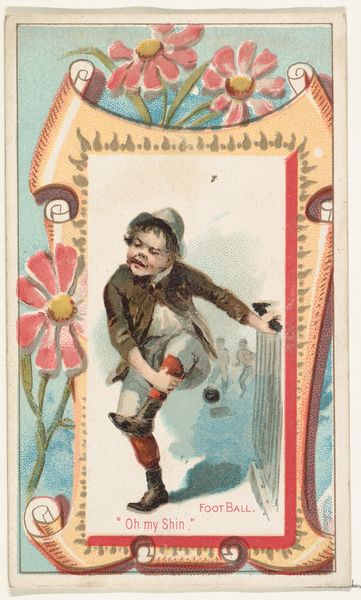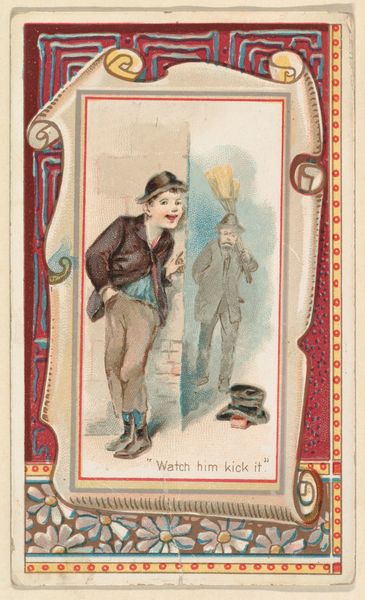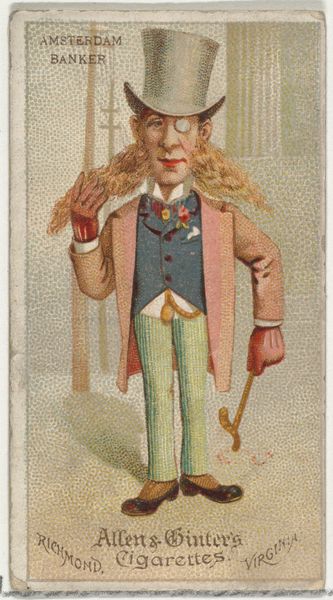
"Say Fellars, them's my new duds," from the Terrors of America set (N136) issued by Duke Sons & Co. to promote Honest Long Cut Tobacco 1888 - 1889
0:00
0:00
drawing, graphic-art, coloured-pencil, lithograph, print
#
portrait
#
drawing
#
graphic-art
#
coloured-pencil
#
lithograph
# print
#
impressionism
#
traditional media
#
boy
#
coloured pencil
#
watercolour illustration
#
genre-painting
Dimensions: Sheet: 2 3/4 x 1 1/2 in. (7 x 3.8 cm)
Copyright: Public Domain
Editor: This is "Say Fellars, them's my new duds," a lithograph from around 1888, created by W. Duke Sons & Co. as an advertisement. It’s a portrait of a young boy showing off his clothes. There's something unsettling about the wide grin on his face, and how proud he seems. What do you see in this piece? Curator: I see a powerful reflection of late 19th-century social dynamics. Advertising like this wasn't just selling tobacco; it was selling a specific vision of American boyhood, linking consumption with identity. But whose identity? The rosy-cheeked innocence is a performance, especially when we consider the economic disparities of the time. Who had access to those ‘new duds’? Editor: So you're saying that beneath the surface, it's about class? Curator: Absolutely. And perhaps race and gender too. Consider the idealized presentation of boyhood, linked directly to consumerism. It excludes so many. Does the image unintentionally highlight the experiences of working-class children or children of color who were often excluded from such displays of affluence? Editor: That's interesting. I hadn't considered that advertising itself can be a form of social commentary, even if unintentionally. I initially saw just a charming, if slightly off-putting, image of a child. Curator: These images, these “duds,” can become powerful signifiers when read critically. They force us to confront the complex ways that power, identity, and representation intertwine in everyday life. Editor: Thank you. It really is much more complex when viewed with that perspective. Curator: My pleasure.
Comments
No comments
Be the first to comment and join the conversation on the ultimate creative platform.
